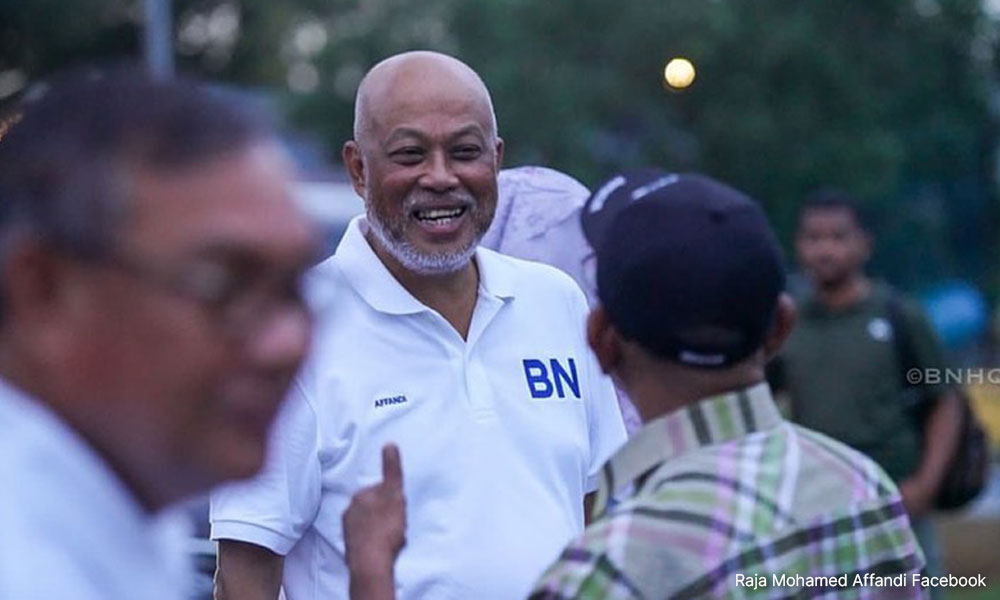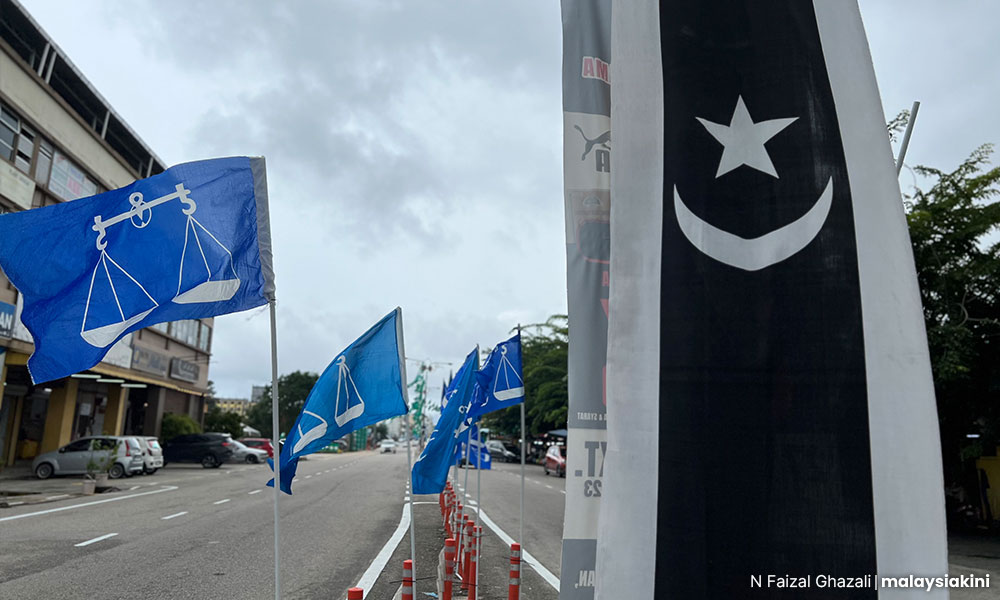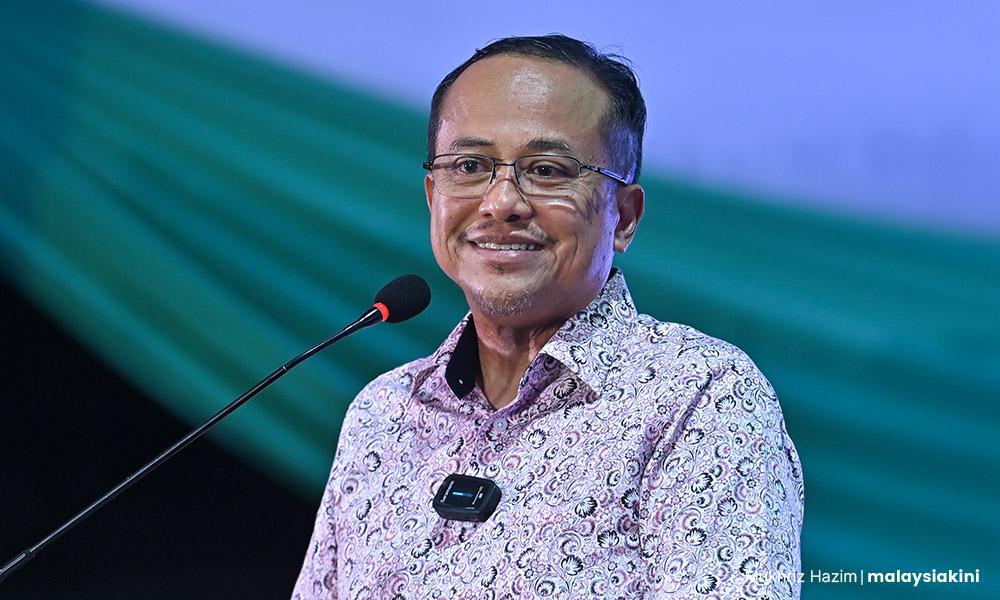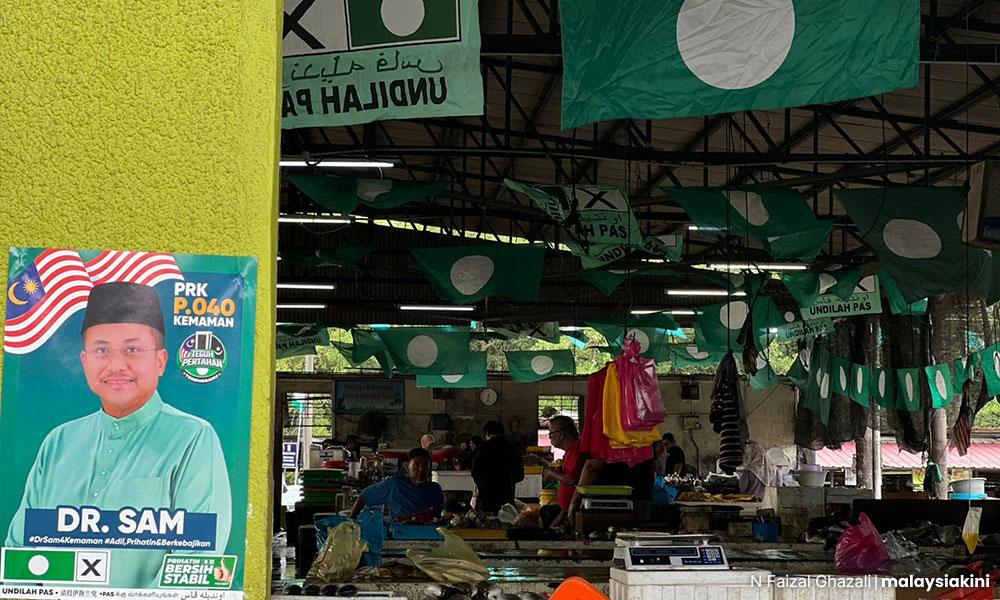The special by-election in Kemaman, Terengganu this weekend will not change the federal government numbers, as PAS is favoured to win back the seat it lost due to losing an electoral petition.
There will be attention to the majority, with Umno hoping to build on its win in the Pelangai by-election and PAS aiming for a strong endorsement.
What has drawn attention in the campaign is the big guns being fielded. It is not usual to have a retired defence force chief Raja Mohamed Affandi Raja Mohamed Noor face off against a sitting Menteri Besar Ahmad Samsuri Mokhtar in a by-election.
Raja Mohamed Affandi is hoping to capitalise on his local and national standing, as he was raised in the area, while aeronautical engineer Samsuri is seeking to position himself as a potential prime minister candidate for PAS.
Both men come to the contest with professional experience and offer strong options for Kemaman voters.
This contest, however, is not really about the individuals involved, despite their prominence. What is at stake is the future of Malaysia’s two largest Malay parties - PAS and Umno.
Long locked in a political battle for decades, the two parties are facing off for their futures, but ironically being weighed down by their pasts. Let’s take each in turn.
Umno’s rebuilding: Still in fighting mode
The choice of Raja Mohamed Affandi speaks to Umno’s recognition that its state leaders, notably local warlord and recent losing candidate Ahmad Said, need changing. The party was wiped out in the August 2023 state elections. To bring in an experienced soldier is an important step for Umno.
It is an acknowledgement of a need to move forward from traditional leaders in the state; a no longer politically viable local hero is being replaced by a respected national hero - a positive step.
Umno’s by-election fight for electoral support is no longer a chest-thumping confrontation, based on a sense of entitled control of the area. Instead, the party is building on its record in government and sending a signal it is open to change, even (very belatedly) starting to listen to voters.

No question, the general’s candidacy has created a buzz for Umno. He faces challenges engaging voters - his age at 66 hurts him with younger voters (with a lack of meaningful social media connectivity also not helping) and ironically his high standing is a barrier in engaging voters (especially with some rural Felda voters).
Despite a shift in state party leadership, Umno is unfortunately (still) living on the grandeur (and entitlement) of its past. For young voters, the party has yet to show what it will do to address the present and future.
Voters under 30 make up 45 percent of the Kemaman electorate, six percent of those Undi18 voters under 21. This group of voters were critical for PAS’s electoral victories in Terengganu, where an estimated 66 percent of voters under 30 voted for PAS in GE15 (a pattern that continued in the August 2023 state polls) and will be hard to swing.
There still is the challenge of what the party stands for now, as a secondary player in a federal unity government. Their ally, Anwar’s leadership, also has (very) limited pull among Kemaman voters. Umno has no clear counter-narrative to PAS’s conservative Islamist messaging and strong local governance. Many see the party as over politically, a brand that is hard to break.
This said, Umno is more competitive than in recent polls. There are two groups that Umno is hoping will swing the tide for them. There is the assumption that they will win the overwhelming majority of Chinese support (five percent of the electorate), which they have done in the past two elections this past year at the federal and state level.

The first group in focus for Umno is Felda voters, who comprise around 15 percent of the electorate. Large parts of Kemasik, Kijal and Air Putih are home to traditional Felda settlements, but many Felda voters also have moved to the small towns.
Felda voters have moved away from Umno since 2013, but the party still has a base in these communities, an estimated 65 percent. It is hoping to win some of these voters back.
Speaking with voters in Felda Neram, there are still voters loyal to Umno, especially older voters. Other Felda voters, however, remain ambivalent (and negative) about Umno’s national leadership. Potential gains in these rural areas (as there were in Pelangai) for Umno speak to a needed strengthening of core support for the party.
The second group that Umno hopes to win back are Malay professionals, comprising another 10 percent of voters with their families. Kemaman is the base of the oil and gas sector in the state, with Petronas located here and a considerable number of small businesses, including in fishing and agriculture.
Over the past few elections, the party has lost significant ground in this group as well. Despite the general’s standing, it is a tough battle for Umno.
PAS strategic power play
What makes it harder is that PAS is using Kemaman strategically. While Umno is in the federal unity government - and can build on this incumbency to try to win support - PAS is using the Kemaman campaign as part of its bid to gain national power.

By fielding Samsuri, the aim is to offer a technocrat professional as the party’s potential PM candidate – for national parliament exposure and in a key position as persistent rumbles of political reconfiguration continue.
Samsuri’s candidacy has been couched as part of PAS’s ongoing struggle to hold government, a move that aims to mobilise the party faithful and tap into local Terengganu sentiments about potential national leadership.
The implications of this move - fielding a close ally of PAS President Abdul Hadi Awang - for PAS internally remain unresolved. It showcases that the party is not pushing for a religious scholar as its national leader, but trying to project an image of experienced technocratic leadership.
No question, PAS needs to strengthen the competency of its representation nationally. For the party, the role of religious leaders is also changing so it can accommodate its political ambitions.
The Islamist party is wrestling with the image that its leadership is not capable of running the country nationally, in part due to the prominence of religious leaders in PAS-led state governments. They are trying to break this image.

In Kemaman, for PAS, the core group that drives their favoured chances are young voters and women. The youth vote was noted above, and PAS’ core base is now in Terengganu. It has also made inroads into other areas where Umno dominated.
An estimated majority of over 65 percent of Malay women voted for PAS in the past two elections, preliminary analysis of the data shows, an advantage that works to their favour and illustrative of the ground Umno has lost.
The campaign has been low-key, unexciting and in stark contrast to Terengganu Umno of the recent past, relatively cordial. Umno, however, may have offered a new face, but the body of the party is still suffering.
Kemaman voters have a history of swinging support in the past. Any gains for Umno may provide a salve for the party, even a reduction in the PAS majority. Minimally gains could reinforce the need for leadership revitalization.
For now, however, the incumbent PAS retains the advantage. - Mkini
BRIDGET WELSH is an honourary research associate of the University of Nottingham’s Asia Research Institute, a senior research associate at Hu Fu Center for East Asia Democratic Studies, and a senior associate fellow at The Habibie Centre. Her writings can be found at bridgetwelsh.com.
The views expressed here are those of the author/contributor and do not necessarily represent the views of MMKtT.




No comments:
Post a Comment
Note: Only a member of this blog may post a comment.